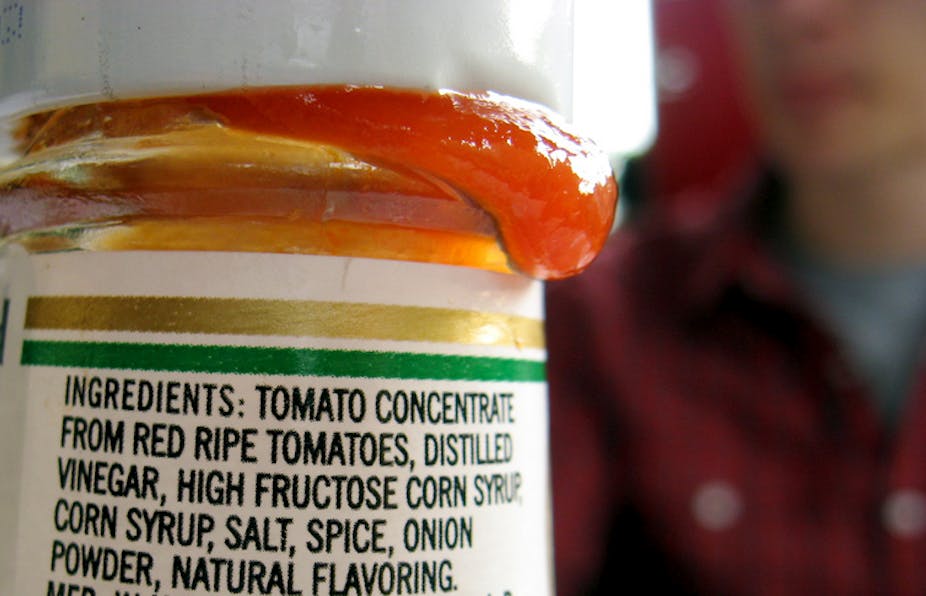An EU decision to allow health claims to be made about fructose has angered obesity experts who blame the fruit sugar for rising obesity levels in the US. The decision allows food and drink manufacturers to claim the “consumption of foods containing fructose leads to a lower blood glucose rise compared to foods containing sucrose or glucose”, where at least 30% of other sugars have been replaced by fructose.
Last December, the EU restricted food health claims on products to those that had been scientifically substantiated and officially authorised. The fructose claim was allowed because it has a low glycemic index (GI), but there are serious concerns because this doesn’t necessarily make it healthy and also whether a health claim should be allowed at all when we should be consuming less sugar — glucose, sucrose or fructose — in our diet.
Warnings from the science community
The European Food Safety Authority (EFSA), which advised on the decision, actually sounded a note of caution in May 2011. It pointed out that high intakes of fructose could lead to complications such as dyslipidaemia (a higher amount of lipids such as cholesterol in the blood), insulin resistance and an increase in visceral fat: the internal fatty deposits that can accumulate around organs (rather the fat you can pinch under your skin).
Robert Lustig, an American endocrinologist, went further. He argued it was pseudoscience to find a health benefit from reducing blood glucose when increasing fructose in the blood directly contributed to heart disease and diabetes and was associated with other serious health problems.
The ‘halo effect’
A major fear is the so-called halo effect, where a product that is marked as healthy, or has at least some health claims, leads consumers to believe it is a wholly healthy product. The drafters of the 2006 EU Regulation on health and nutrition claims clearly shared this concern and wanted to avoid a situation where “nutrition or health claims mask the overall nutritional status of a food product, which could mislead consumers when trying to make healthy choices in the context of a balanced diet”. For this reason, the regulation required the EC to establish “specific nutrient profiles which food or certain categories of food must comply with in order to bear nutrition or health claims”.
These are the same tools that are used in the UK to determine when food and drink is too high in fat, sugar or salt, to be advertised to some children on TV. Nutrient profiles drawn up by the Food Standards Agency, weigh up the amount of fat, sugar and salt in foods against the good nutrients like vitamins and minerals.
But although there was a January 2009 deadline for the EC to produce nutrient profiles according to the regulation, no profiles have been developed to date. This failure means that the EC also has no option to restrict claims on unhealthy foods - it must either authorise or refuse them.
Refuse or defer
In the case of fructose, the better path would have been to refuse the fructose claim, or at least defer a decision pending further evidence. Not only would this respect the intention of the regulation to avoid mixed messages but it would also have invoked the “precautionary principle”, which applies when a danger has been identified but there is no strong evidence of the precise risk involved, and which comes into play in issues of health and consumer protection.
In this case there is mounting scientific evidence of harm from fructose consumption and uncertainty about a potential increase in consumption from manufacturers re-formulating food and drinks with fructose and promoting them using a health claim. It has been pointed out elsewhere that fructose manufacturers clearly expect a surge in sales.
Instead, the commission chose to authorise the fructose claim rather than taking the approach used for other claims that involved refusing authorisation or deferring a decision to avoid confusing the consumer (for example, over conflicting national dietary advice on sugars and a potential health claim relating to carbohydrates) or misleading them (because a salt claim relied on compositional levels that were uncertain and therefore may not have been beneficial).
Perhaps this is “incompetence or collusion” as Lustig suggests, or maybe it is one bad decision in the absence of evidence on the effect of a claim.
It could also be that this is the first of several narrow, “technical” health claims that could be applied to products that are high in fat, salt or sugars, as industry gets smarter about the system and the process of authorisation - in which case it is time the European Commission revisited the spirit of the regulation to make sure we avoid these mixed messages. Unfortunately this may not be possible until it fulfils its obligation to develop a set of nutrient profiles that can actually be used to guide health and nutrition claims.

